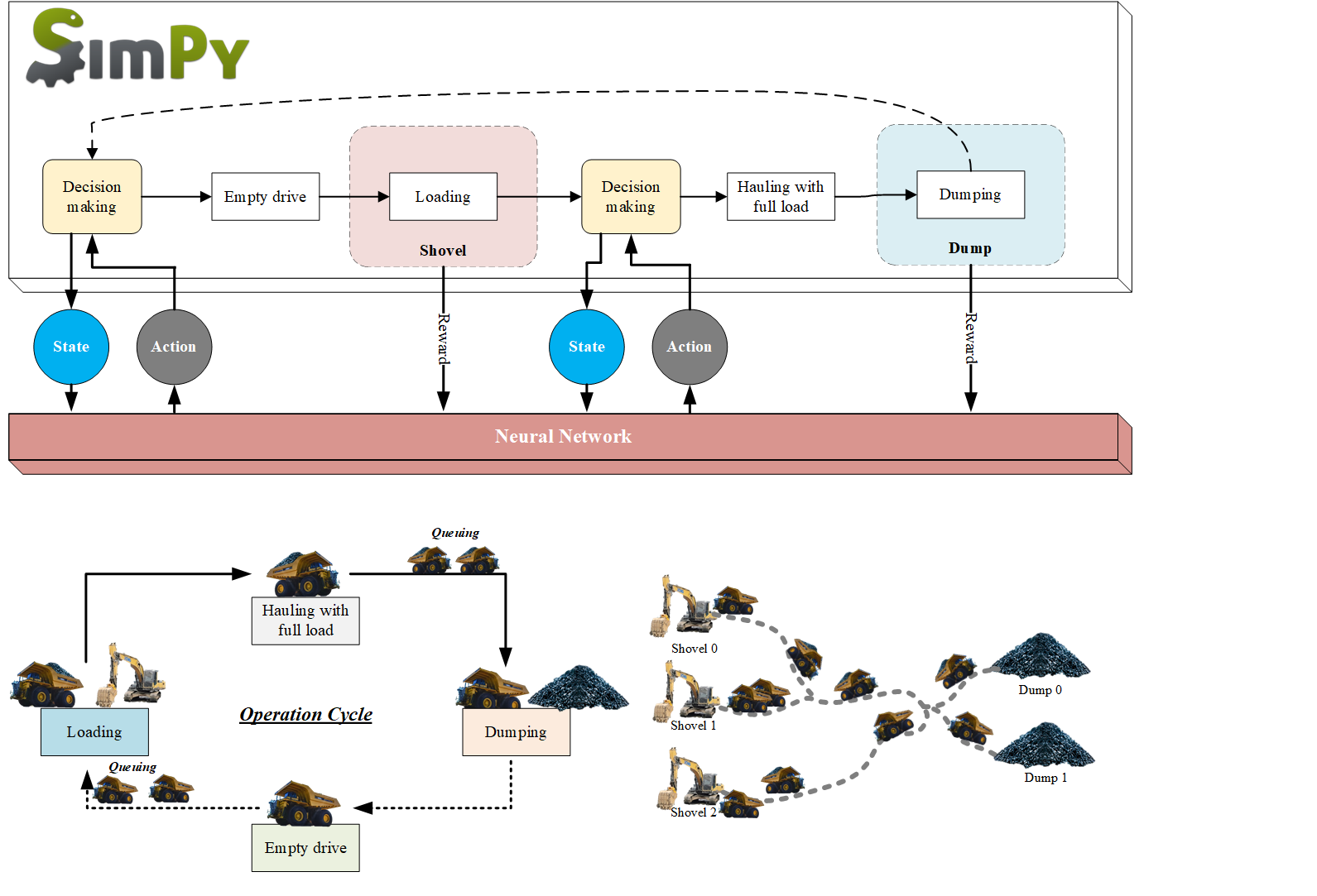Multi-agent Reinforcement Learning-Based Fleet Dispatching
Multi-agent Reinforcement Learning-Based Fleet Dispatching August 2023 - June 2024

1. Simulation Platform Development: Mining haulage fuel consumption accounts for over half of the greenhouse gas emissions, highlighting the need for optimized solutions. Developed a fleet dispatch simulation platform using PyTorch and SimPy, modeling mountainous scenarios, including assembly, real-time dynamic scheduling, and resupply.

2. Multi-Agent Reinforcement Learning System: Each truck is treated as an independent agent with a standardized set of state variables. Integrated Deep Q-Network (DQN), a model-free reinforcement learning system, with dynamic programming optimization methods to enhance transportation efficiency, reducing waiting time and energy consumption.The DQN algorithm enable them to learn and refine dispatching policies by maximizing rewards.
3. Results and Advantages: The system demonstrated superior adaptability and efficiency compared to traditional methods. Achieved a 10% reduction in energy consumption per kilogram transported and a 3,800-ton increase in production. It quickly adjusts fleet deployment in response to unexpected situations and complex transport environments. The system showed improved task balancing and robustness against truck failures.
